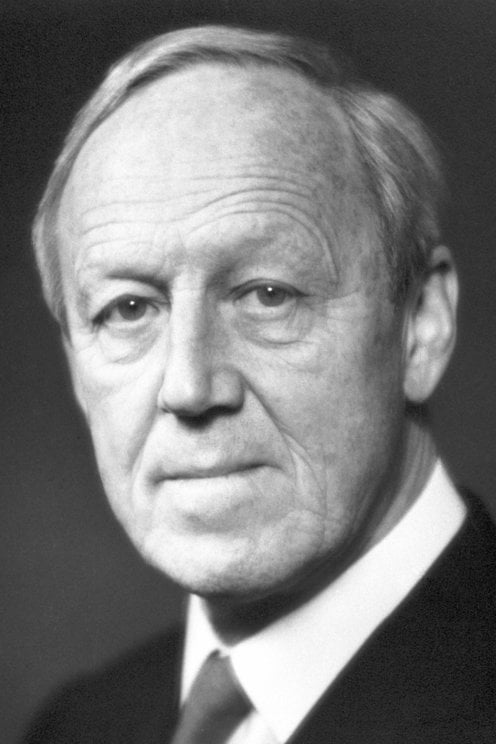Math Is Fun Forum
You are not logged in.
- Topics: Active | Unanswered
#1801 Yesterday 17:55:37
- Jai Ganesh
- Administrator

- Registered: 2005-06-28
- Posts: 52,086
Re: crème de la crème
2364) Hannes Alfvén
Gist:
Work
The phenomenon of aurora borealis occurs when bursts of charged particles from the sun collide with the earth’s magnetic field. These jets of particles are an example of a special state of matter—plasma. Plasma is a gas comprised of electrons and ions (electrically charged atoms) that forms at high temperatures. From the late 1930s onward, Hannes Alfvén developed a theory about aurora borealis, which led to magneto-hydrodynamics; the theory of the relationships between a plasma’s movements, electric currents and fields, and magnetic fields.
Summary
Hannes Alfvén (born May 30, 1908, Norrköping, Sweden—died April 2, 1995, Djursholm) was an astrophysicist and winner, with Louis Néel of France, of the Nobel Prize for Physics in 1970 for his essential contributions in founding plasma physics—the study of plasmas (ionized gases).
Alfvén was educated at Uppsala University and in 1940 joined the staff of the Royal Institute of Technology, Stockholm. During the late 1930s and early ’40s he made remarkable contributions to space physics, including the theorem of frozen-in flux, according to which under certain conditions a plasma is bound to the magnetic lines of flux that pass through it. Alfvén later used the concept to explain the origin of cosmic rays.
In 1939 Alfvén published his theory of magnetic storms and auroral displays in the atmosphere, which immensely influenced the modern theory of the magnetosphere (the region of Earth’s magnetic field). He discovered a widely used mathematical approximation by which the complex spiral motion of a charged particle in a magnetic field can be easily calculated. Magnetohydrodynamics (MHD), the study of plasmas in magnetic fields, was largely pioneered by Alfvén, and his work has been acknowledged as fundamental to attempts to control nuclear fusion.
After numerous disagreements with the Swedish government, Alfvén obtained a position (1967) with the University of California, San Diego. Later he divided his teaching time between the Royal Institute of Technology in Stockholm and the University of California.
Alfvén devised “plasma cosmology,” a concept that challenged the big-bang model of the origin of the universe. The theory posited that the universe had no beginning (and has no foreseeable end) and that plasma—with its electric and magnetic forces—has done more to organize matter in the universe into star systems and other large observed structures than has the force of gravity. Much of Alfvén’s early research was included in his Cosmical Electrodynamics (1950). He also wrote On the Origin of the Solar System (1954), Worlds-Antiworlds (1966), and Cosmic Plasma (1981).
Details
Hannes Olof Gösta Alfvén (30 May 1908 – 2 April 1995) was a Swedish electrical engineer, plasma physicist and winner of the 1970 Nobel Prize in Physics for his work on magnetohydrodynamics (MHD). He described the class of MHD waves now known as Alfvén waves. He was originally trained as an electrical power engineer and later moved to research and teaching in the fields of plasma physics and electrical engineering. Alfvén made many contributions to plasma physics, including theories describing the behavior of aurorae, the Van Allen radiation belts, the effect of magnetic storms on the Earth's magnetic field, the terrestrial magnetosphere, and the dynamics of plasmas in the Milky Way galaxy.
Education
Alfvén received his PhD from the University of Uppsala in 1934. His thesis was titled "Investigations of High-frequency Electromagnetic Waves."
Early years
In 1934, Alfvén taught physics at both the University of Uppsala and the Nobel Institute for Physics (later renamed the Manne Siegbahn Institute of Physics) in Stockholm, Sweden. In 1940, he became professor of electromagnetic theory and electrical measurements at the Royal Institute of Technology in Stockholm. In 1945, he acquired the nonappointive position of Chair of Electronics. His title was changed to Chair of Plasma Physics in 1963. From 1954 to 1955, Alfvén was a Fulbright Scholar at the University of Maryland, College Park. In 1967, after leaving Sweden and spending time in the Soviet Union, he moved to the United States. Alfvén worked in the departments of electrical engineering at both the University of California, San Diego and the University of Southern California.
Later years
In 1991, Alfvén retired as professor of electrical engineering at the University of California, San Diego and professor of plasma physics at the Royal Institute of Technology in Stockholm.
Alfvén spent his later adult life alternating between California and Sweden. He died at the age of 86.
Personal life
Alfvén was married for 67 years to his wife Kerstin (1910–1992). They raised five children, one boy and four girls. Their son became a physician, while one daughter became a writer and another a lawyer in Sweden. The writer was Inger Alfvén and is well known for her work in Sweden. The composer Hugo Alfvén was Hannes Alfvén's uncle.
Alfvén studied the history of science, oriental philosophy, and religion. On his religious views, Alfven was irreligious and critical of religion. He spoke Swedish, English, German, French, and Russian, and some Spanish and Chinese. He expressed great concern about the difficulties of permanent high-level radioactive waste management." Alfvén was also interested in problems in cosmology and all aspects of auroral physics, and used Schröder's well known book on aurora, Das Phänomen des Polarlichts. Letters of Alfvén, Treder, and Schröder were published on the occasion of Treder's 70th birthday. The relationships between Hans-Jürgen Treder, Hannes Alfvén and Wilfried Schröder were discussed in detail by Schröder in his publications.
Alfvén died on 2 April, 1995 at Djursholm aged 86.

It appears to me that if one wants to make progress in mathematics, one should study the masters and not the pupils. - Niels Henrik Abel.
Nothing is better than reading and gaining more and more knowledge - Stephen William Hawking.
Offline